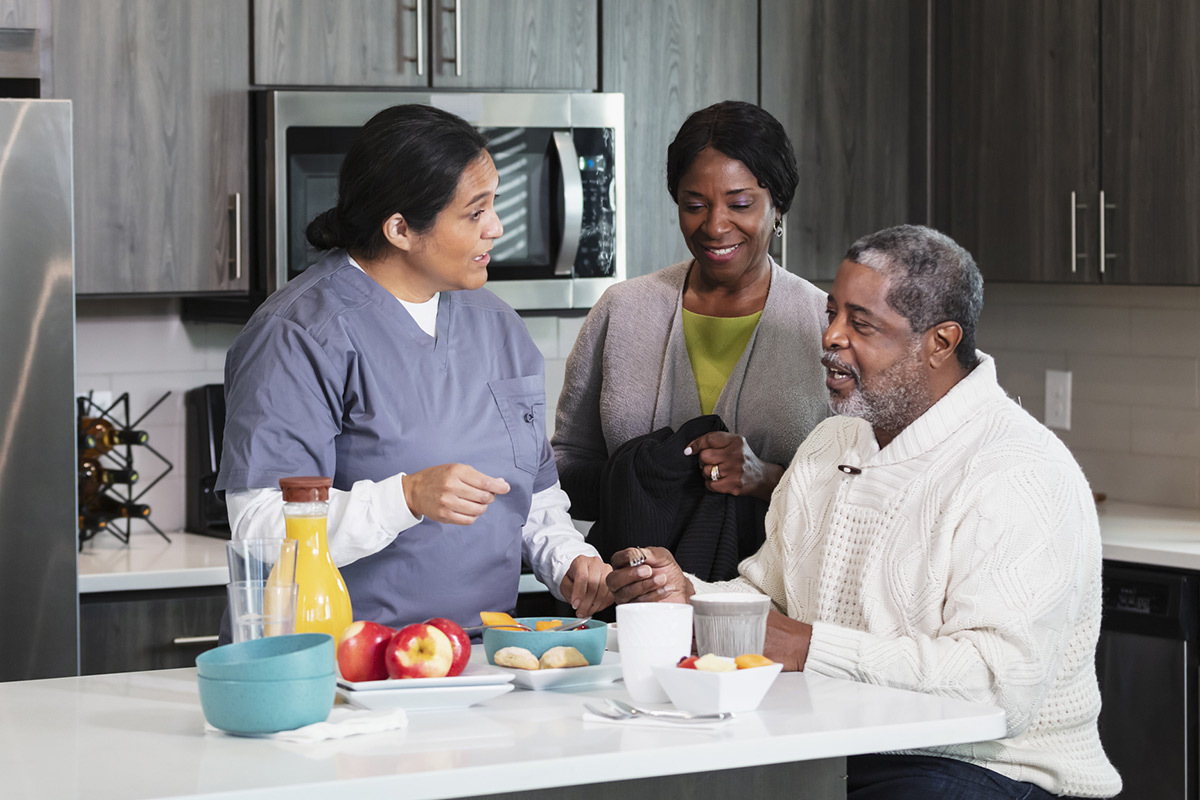
Your care team consists of medical professionals who specialize in different areas of health care. A registered dietitian (RD) is your specialist for all things food and nutrition. According to the National Cancer Institute, “research has shown that including a registered dietitian in a patient's cancer care can help the patient live longer.” You may be wondering who dietitians are and how they can help. Let's talk about it!
A registered dietitian is a nutrition expert with extensive training in food, various disease states, biochemistry, physiology and other areas of health care. Some dietitians hold the CSO designation, which means they are board-certified specialists in oncology nutrition.
Registered dietitians provide guidance and education on what to eat during cancer treatment or for cancer prevention. Cancer and cancer treatments can cause adverse side effects that may inhibit your ability to meet your nutritional needs. Registered dietitians assess your history, labs, anthropometrics, medications, appetite, symptoms and social situations to provide recommendations that best fit your needs and lifestyle. We walk alongside you on your cancer journey, provide encouragement, and give recommendations on adjusting your diet to your situation. Lastly, registered dietitians give recommendations and assistance for tube feeding and other areas of nutrition support.
Nutrition is vital for life. During cancer treatment, you may have an increased need for calories and protein. To provide your body with the best tools to fight cancer, you should eat a high-protein, mostly plant-based diet. This can be very difficult to maintain when battling the nausea, vomiting, fatigue, diarrhea, constipation or poor appetite that can often result from cancer treatments. The result is unintentional weight loss, which can lead to malnutrition and delays in cancer treatment. Registered dietitians are here to help you manage the side effects of cancer treatment, and prevent weight loss and malnutrition.
At Baptist Cancer Center, we have dietitians available to provide medical nutrition therapy and assist you with any questions or concerns. Meeting with a dietitian is a free service to our patients. Speak with your doctor to request a nutrition referral. If you aren’t quite ready to meet with a dietitian yet, check out our THRIVE nutrition offerings led by our dietitians.
Eating and nurturing our bodies is something that we do every day. However, during your cancer journey this may become more difficult. But you don’t have to face that challenge alone. Ask the nutrition experts on your team to help you create a nutritious lifestyle that best supports your needs during your journey.